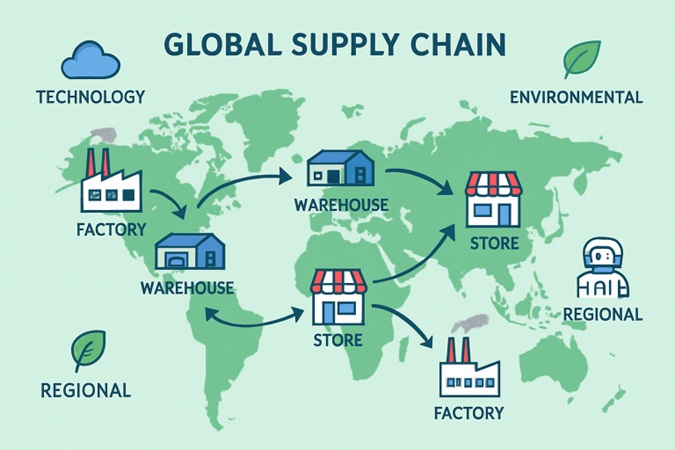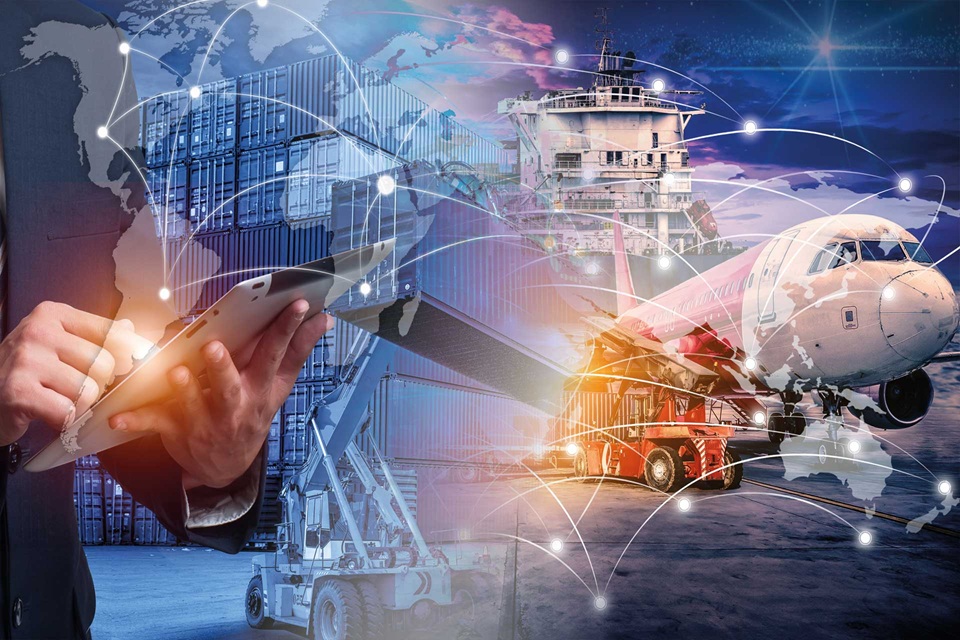Key Takeaways:
- Global distributors are leveraging digital transformation to optimize supply chain operations, leading to increased agility and efficiency in delivery models.
- Technologies like AI, IoT, and blockchain are central to modernizing distribution networks, ensuring transparency, security, and better decision-making.
- Sustainability and ethical practices are becoming integral to distribution strategies, helping companies align with consumer values and regulatory requirements.
- Regionalization is influencing distribution models, balancing global reach with local responsiveness to meet varied market needs efficiently.
Table of Contents
Introduction
Global product distributors are transforming international supply chains by bridging manufacturers, suppliers, and end-users, including retail and wholesale merchandise Mosely VA. They use advanced tools and strategies to ensure efficient and reliable goods flow. They collaborate with retail and wholesale partners to streamline logistics, enhance customer experiences, and meet market expectations. Successful distributors can quickly adapt to market demands and economic shifts. They refine operational processes to ensure flexibility and responsiveness for regional and global stakeholders. Integrating technologies like automation, data analytics, and real-time digital tracking helps anticipate demand changes, minimize bottlenecks, and mitigate risks. By embracing sustainability and ethical practices, these companies foster trust with customers and partners, resulting in a supply chain that is resilient and adaptive to global challenges.
Embracing Digital Transformation
The distribution sector is experiencing a digital transformation, with nearly 80% of distributors adopting digital initiatives. This is driven by cloud-enabled platforms and e-commerce solutions, which simplify inventory management, reduce errors, and improve communication. Distributors can track orders in real-time and use predictive analytics to optimize stock levels, providing customers with accurate information about product availability. This digital-first approach gives distributors a competitive edge and fundamentally changes the supply chain.
Integrating Advanced Technologies
Technological advancements have significantly improved the speed, reliability, and security of global distribution networks. Artificial intelligence is used for demand forecasting and inventory management, allowing companies to respond quickly to market changes. The Internet of Things uses smart sensors to transmit data on physical assets, reducing lost goods and delays. Blockchain technology offers traceability through decentralized infrastructure, allowing stakeholders to verify product origin, handling, and compliance. These advancements have established a new paradigm for speed, transparency, and reliability.
Prioritizing Sustainability & Ethical Practices
Modern distributors are prioritizing sustainability and ethical practices due to increasing demand for transparency about supply chain environmental and social impacts. They are investing in green technologies like electric vehicles, solar-powered facilities, and eco-friendly materials. Reducing packaging waste and collaborating with responsible suppliers further contribute to sustainability. This commitment leads to better regulatory compliance, increased brand loyalty, and stronger appeal to socially conscious consumers. By aligning operational goals with ethical standards, distributors are positioning themselves as business leaders and corporate citizens in the global economy.
Adapting To Regionalization
Distributors are adopting regionalized approaches to manage international logistics, reducing transport distances and mitigating risks from long-distance disruptions. This involves developing strategically located hubs to minimize transport distances and cater to local consumer preferences. This approach ensures faster, more personalized service, resulting in higher customer satisfaction and repeat business. It also optimizes shipping costs and energy consumption. The shift towards regionalization is helping companies become more resilient, reducing their reliance on single-source, long-haul global supply chains, which can be easily destabilized.
Enhancing Customer Experience
Supply chain distributors are enhancing their offerings by providing value-added services like installation support, warranty management, maintenance scheduling, technical training, and data-driven service dashboards. This approach transforms transactional relationships into strategic partnerships, leveraging customer data to personalize offerings, resolve issues proactively, and drive higher service standards. This focus on end-to-end solutions boosts customer loyalty, reduces churn, and creates long-term value for both clients and distributors.

Leveraging B2B Marketplaces
B2B marketplaces have revolutionized distribution by creating digital ecosystems that allow distributors to diversify product portfolios and build dynamic supplier networks. These platforms reduce entry barriers, allowing businesses to connect globally without large inventories or intermediaries. They enable efficient sourcing, negotiation with manufacturers, and rapid sourcing strategies. Trust and accountability mechanisms on these platforms facilitate transparent business operations, gaining credibility quickly. This transformation has accelerated innovation, maintained a competitive edge, and improved resilience against supply chain shocks, according to the Wall Street Journal.
Investing In Workforce Development
Distributors are investing in talent to keep up with the rapid evolution of technology and the complexity of modern supply chains. They are launching training and upskilling programs in critical areas like data analytics, digital supply chain management, and e-commerce fulfillment. This fosters a culture of continuous learning and innovation, allowing companies to respond quickly to technological changes and customer preferences. Workforce development is crucial for maintaining business continuity, fostering employee engagement, and strengthening a distributor’s reputation in a competitive talent market.
Conclusion
Global product distributors are redefining what it means to be a successful player in today’s rapidly changing supply chain environment. By embracing digital innovation, integrating cutting-edge technologies, prioritizing sustainability, and investing in their most valuable resource—their people—these organizations are setting new industry standards for resilience, efficiency, and customer-centricity. Their transformative efforts are crucial in helping businesses of all sizes navigate complex economic landscapes, anticipate change, and consistently deliver value to customers in every corner of the world.







No Comments